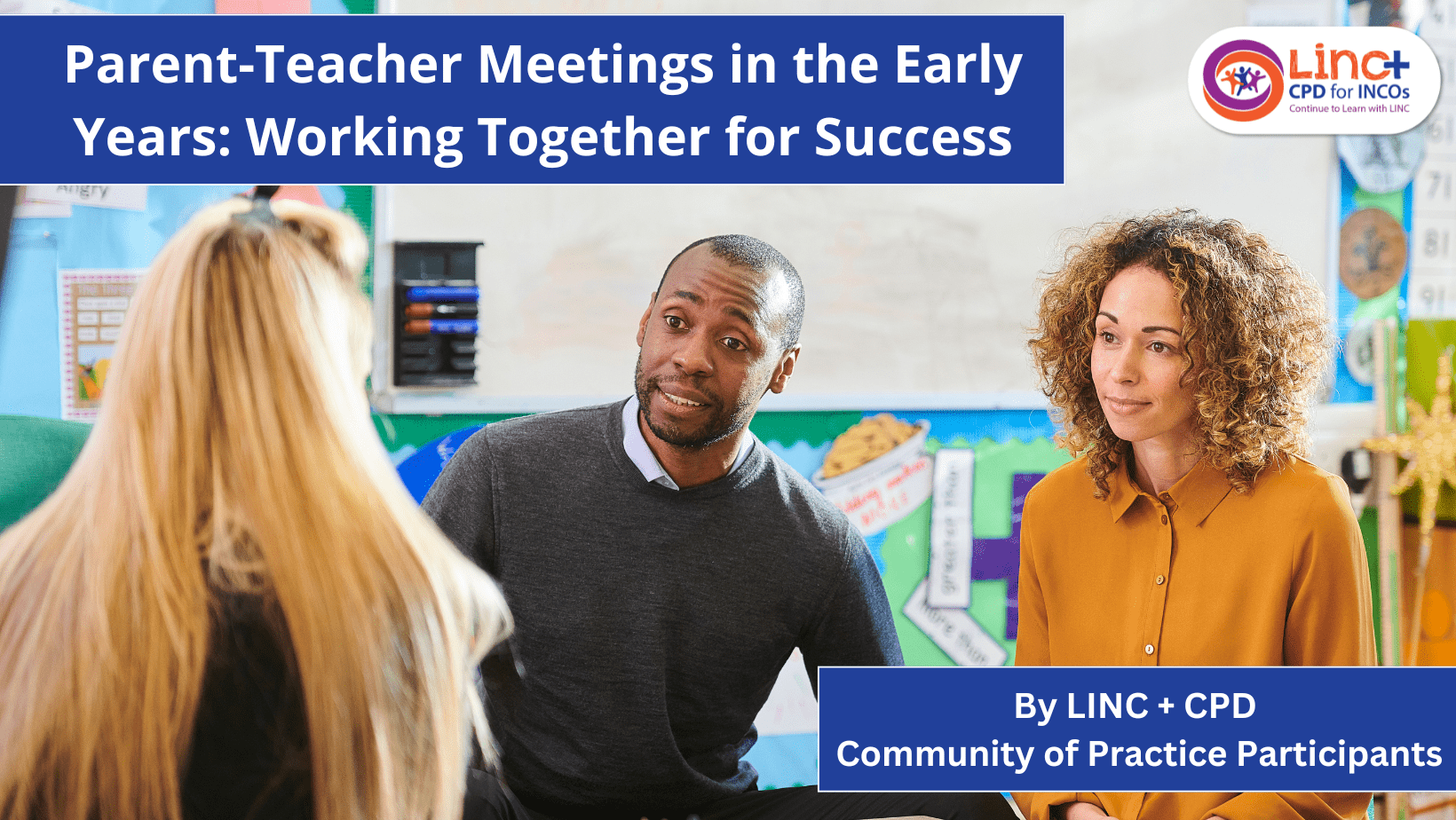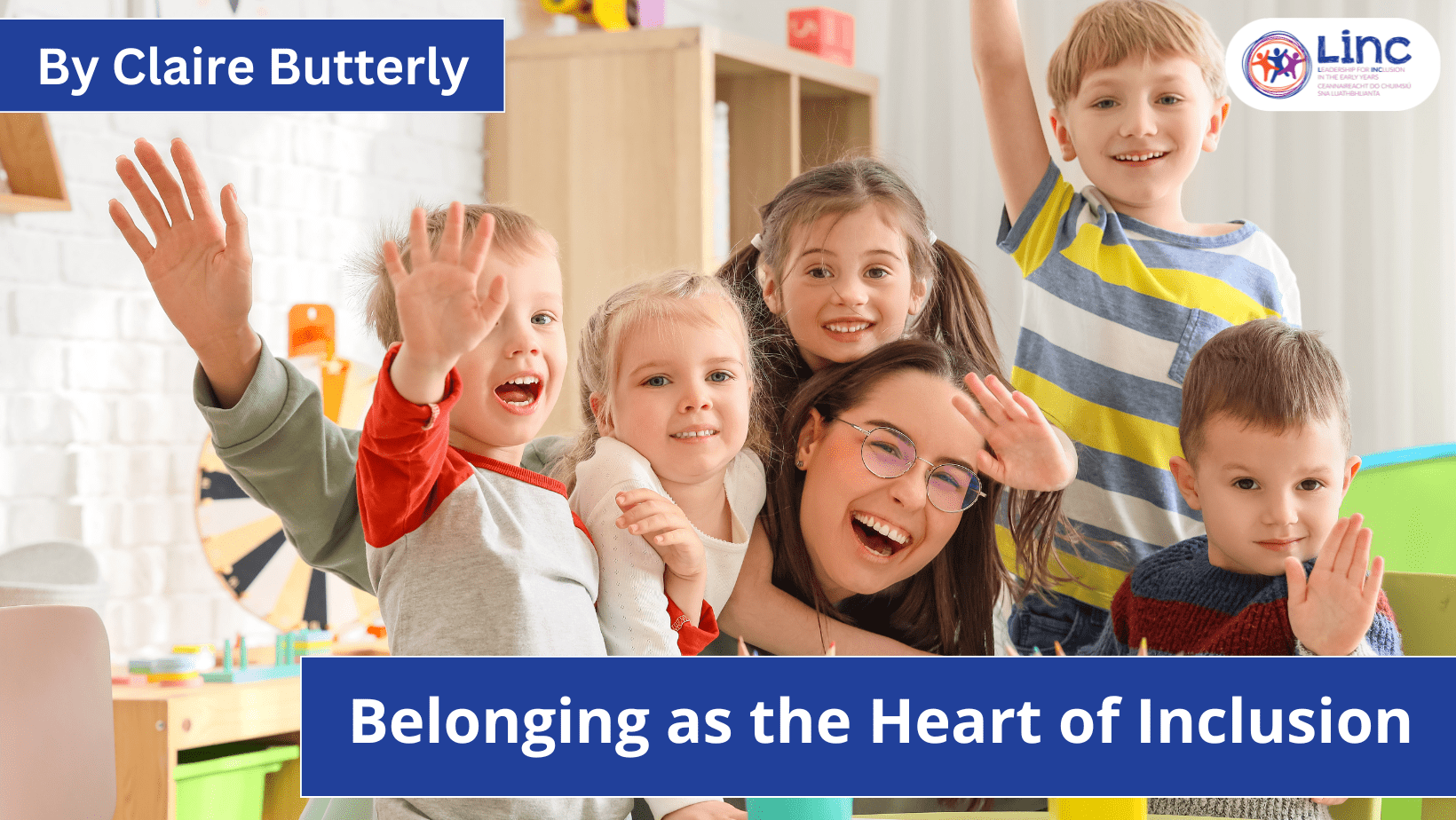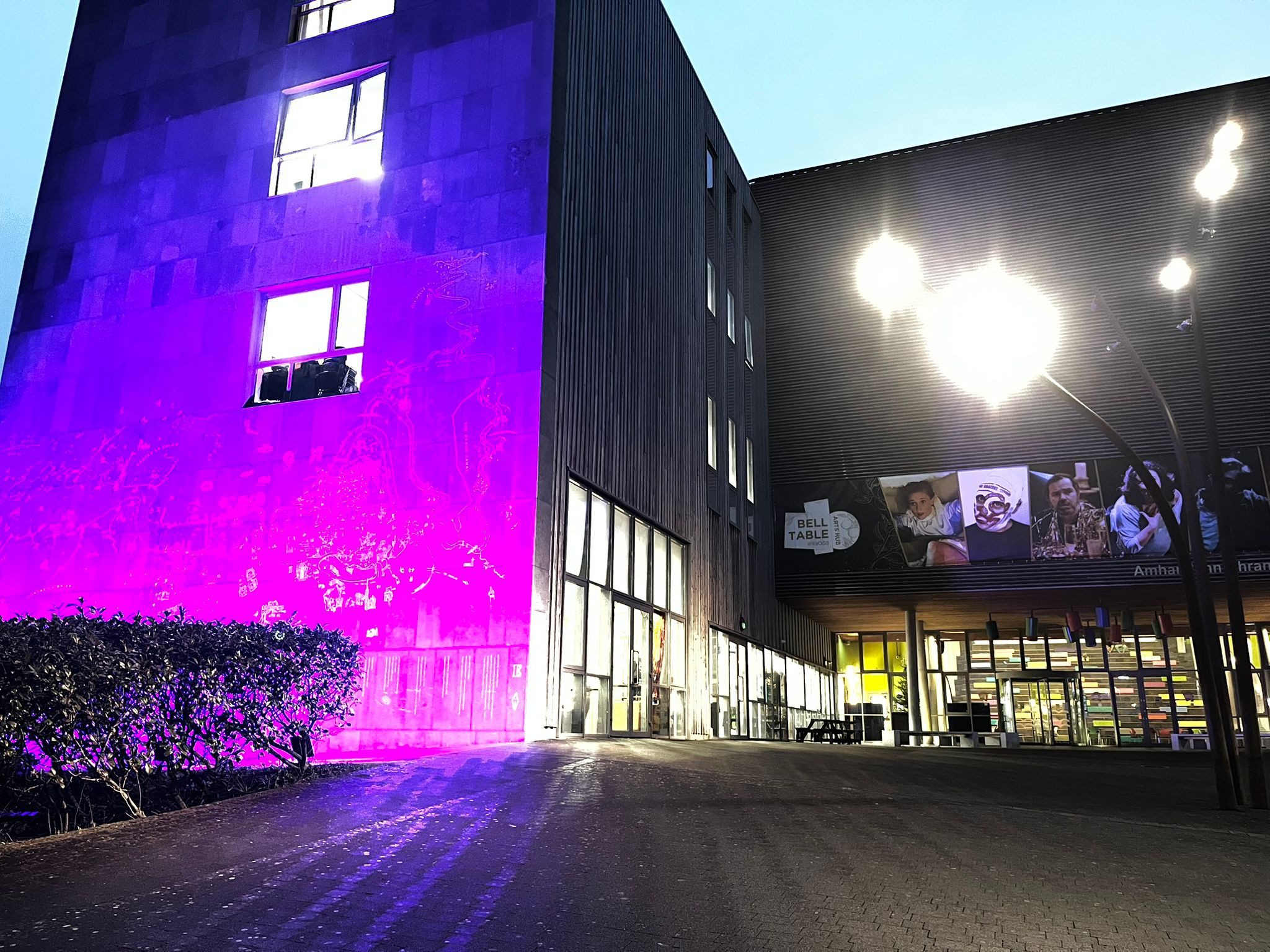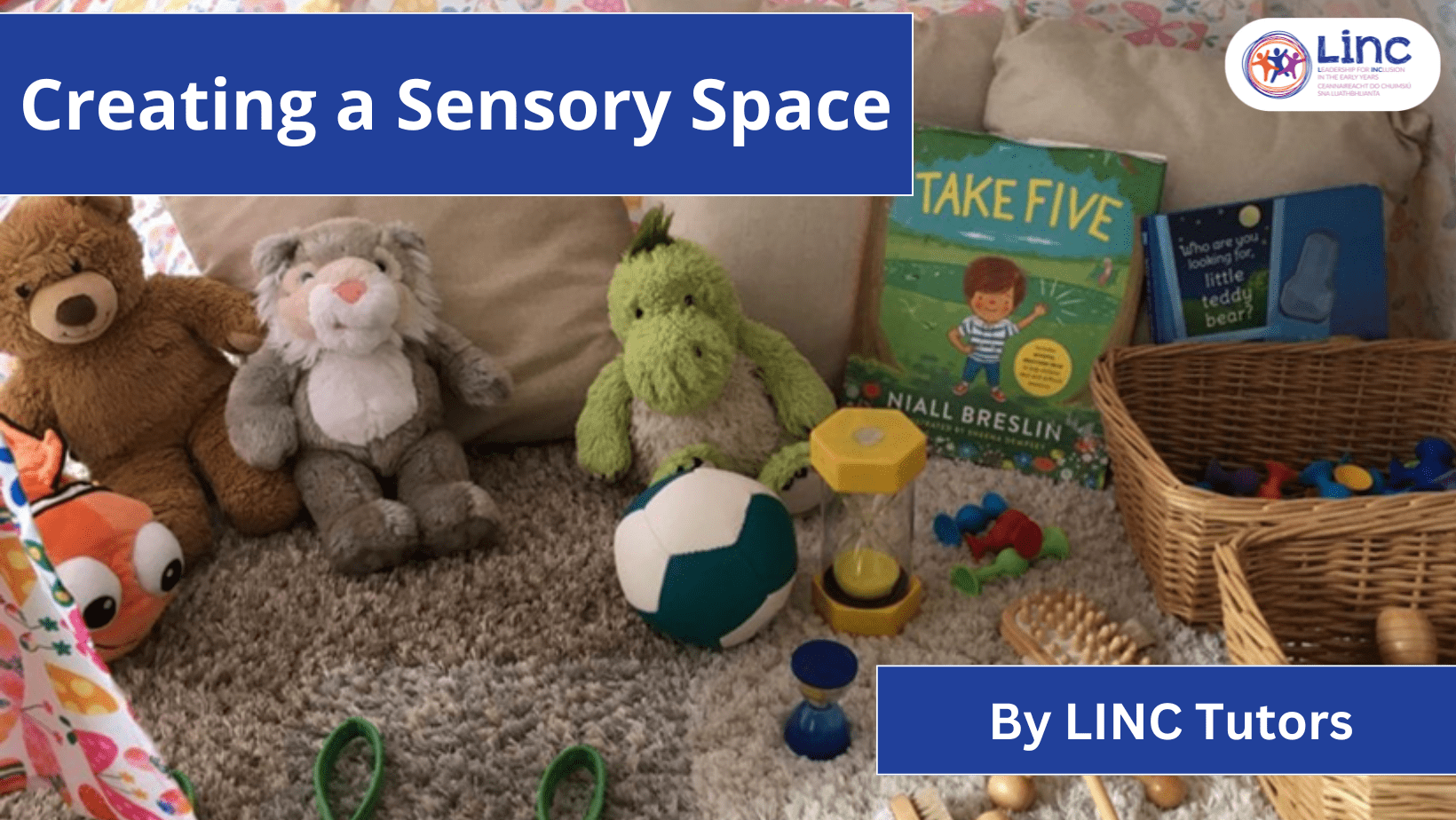Parent-Teacher Meetings in the Early Years: Working Together for Success
In this edition of the LINC Blog, the LINC+ CPD Community of Practice Participants explore the importance of parent-teacher meetings in the early years and how they serve as a bridge between home and school. These meetings provide a valuable opportunity for educators and families to connect, share insights, and collaborate in support of a child’s learning and development. By viewing these interactions through the eyes of the child, we can better appreciate the deep bond they share with their parents and how our role as educators helps nurture that connection.

Parent-teacher meetings are a big part of early childhood education. They give teachers and parents the chance to connect, share insights, and work as a team to support a child’s learning and development. These conversations help us build strong relationships, celebrate progress, and tackle any challenges together. But have we ever stopped to see these moments through the eyes of the child? For them, their parents and family are their whole world. They see love, safety, and support in their families, and we as educators have the special job of working alongside them to nurture that love and security in our settings.
From a teacher’s perspective, parent-teacher meetings are all about strengthening the connection between home and school. They’re a chance to share observations about a child’s learning journey and gain valuable insights from families. Parents know their child best, and their experiences at home can help shape the way we support them in the classroom. By linking our discussions to early learning frameworks like Aistear, we ensure that every conversation is purposeful and child-centered. For parents, these meetings are often a mix of excitement and nerves. Some come in eager to chat about their child’s progress, while others might be worried about friendships, milestones, or challenges. No matter how they feel, one thing is clear—parents want to know that their child is happy and thriving. Taking the time to listen, acknowledge their concerns, and offer encouragement can make a world of difference.
Of course, these meetings come with their own set of challenges. Teachers often have a packed schedule, balancing multiple meetings while ensuring each one is meaningful. Parents, too, have different expectations—some want detailed updates, while others just need reassurance that their child is doing well. Sensitive topics, such as social or developmental concerns, need to be approached with care, and language or cultural differences can sometimes create communication barriers. Preparation is key. Teachers often spend time looking over learning journals, observations, and classroom experiences to provide clear examples to parents. Creating a welcoming space, where achievements are celebrated and challenges are met with support, helps ensure that the conversation remains positive and productive. Most importantly, these meetings should be a two-way conversation. Parents have so much valuable insight into their child’s interests, habits, and emotions. When teachers and parents share observations and ideas, we create a fuller picture of the child’s world, both at home and in the classroom. Ending on a positive note, with shared goals and encouragement, leaves everyone feeling supported and motivated.
One of the most meaningful ways we can connect with families is by seeing parents through their child’s eyes. To a young child, their parents are their heroes—their comfort, their guides, and their biggest supporters. Children feel immense pride when they talk about their families, and they bring that love into our settings every day. When we take the time to acknowledge and celebrate this bond, we reinforce a child’s sense of security and belonging. Encouraging children to share stories about their families, incorporating family photos into the classroom, or even asking children to tell us what they love most about their parents strengthens this connection. When parents walk into our classrooms for a meeting, they should feel valued—not just as caregivers but as the most important people in their child’s world. By making an effort to view parents with the same admiration that children do, we foster a deeper appreciation for their role in their child’s learning journey. When children see their teachers and parents working together, it reassures them that their two worlds are connected in a positive and meaningful way.
At the heart of everything we do is the child. Parent-teacher meetings aren’t just about updates and checklists—they’re about working together to create the best possible environment for children to thrive. When we take a moment to see the love children have for their parents and family, we gain a deeper understanding of how important these connections are. By strengthening our relationships with families and acknowledging the deep bond between children and their parents, we create a nurturing, supportive community that truly puts the child first.
After all, when parents and teachers work together with a shared goal, the possibilities for a child’s growth and happiness are endless.
You may also like:

Belonging as the Heart of Inclusion
Belonging as the Heart of Inclusion In this edition of the LINC Blog, LINC National Coordinator Claire Butterly reflects on belonging as the heart of inclusive practice in Early Learning and Care and School-Age Childcare settings. Drawing on the principles of Aistear,...

LINC Shines a Light on Inclusion for the International Day of Persons with Disabilities 2025
LINC Shines a Light on Inclusion for the International Day of Persons with Disabilities 2025 The Leadership for INClusion in the Early Years (LINC) Programme marked the United Nations International Day of Persons with Disabilities (IDPD) this evening by illuminating...

Creating a Sensory Space
Creating a Sensory Space In this edition of the LINC blog, Claire Butterly, Karina Abbott, Ann Donnellan, Carole Dee, Linda Madden, Margaret Joyce and Paula Harte highlight some considerations when planning a sensory space in your Early Learning and Care setting....
